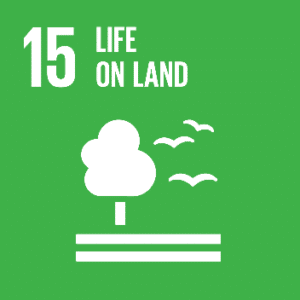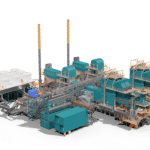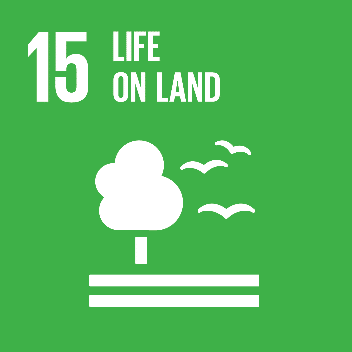WOIMA aligning with UN Sustainable Development Goals (SDG)
Goal 15: Sustainably manage forests, combat desertification, halt and reverse land degradation, halt biodiversity loss

Forests cover 30% of the Earth’s surface and in addition to providing food security and shelter, forests are key to combating climate change, protecting biodiversity and the homes of the indigenous population. Thirteen million hectares of forests are being lost every year while the persistent degradation of drylands has led to the desertification of 3.6 billion hectares.

Deforestation and desertification – caused by human activities and climate change – pose major challenges to sustainable development and have affected the lives and livelihoods of millions of people in the fight against poverty. Efforts are being made to manage forests and combat desertification.
Biodiversity and the ecosystem services it underpins can also be the basis for climate change adaptation and disaster risk reduction strategies as they can deliver benefits that will increase the resilience of people to the impacts of climate change. Forests and nature are also important for recreation and mental well-being. In many cultures, natural landscapes are closely linked to spiritual values, religious beliefs and traditional teachings.
- Around 1.6 billion people depend on forests for their livelihood. This includes some 70 million indigenous people
- Forests are home to more than 80% of all terrestrial species of animals, plants and insects
- 6 billion people depend directly on agriculture, but 52% of the land used for agriculture is moderately or severely affected by soil degradation
- As of 2008, land degradation affected 1.5 billion people globally
- Due to drought and desertification each year 12 million hectares are lost (23 hectares per minute), where 20 million tons of grain could have been grown
- 74% of the poor are directly affected by land degradation globally
- Of the over 80,000 tree species, less than 1% have been studied for potential use
- Over 80% of the human diet is provided by plants. Only three cereal crops – rice, maize and wheat – provide 60% of energy intake
WOIMA is committed to helping the developing countries to sustainably use forests and combat desertification. The tool is our modular wasteWOIMA® waste-to-energy power plant that will
- incinerate cleanly the waste of 100,000 – 500,000 people
- generate affordable energy for 50,000 – 100,000 people
- employ 100 – 200 people
- generate hundreds of jobs and training opportunities up- and downstream
- save 100,000 tons of CO2 equivalent emissions per year
- be up and running within 12 months
UN has set the following targets by 2030, supported by WOIMA and our modular wasteWOIMA® waste-to-energy power plant
- Ensure the conservation, restoration and sustainable use of terrestrial and inland freshwater ecosystems and their services, in particular forests, wetlands, mountains and drylands
- Promote the implementation of sustainable management of all types of forests, halt deforestation, restore degraded forests and substantially increase afforestation and reforestation globally
- Combat desertification, restore degraded land and soil, including land affected by desertification, drought and floods, and strive to achieve a land degradation-neutral world
- Ensure the conservation of mountain ecosystems, including their biodiversity, in order to enhance their capacity to provide benefits that are essential for sustainable development
- Take urgent and significant action to reduce the degradation of natural habitats, halt the loss of biodiversity and protect and prevent the extinction of threatened species
- Promote fair and equitable sharing of the benefits arising from the utilization of genetic resources and promote appropriate access to such resources, as internationally agreed
- Take urgent action to end poaching and trafficking of protected species of flora and fauna and address both demand and supply of illegal wildlife products
- Introduce measures to prevent the introduction and significantly reduce the impact of invasive alien species on land and water ecosystems and control or eradicate the priority species
- Integrate ecosystem and biodiversity values into national and local planning, development processes, poverty reduction strategies and accounts
Read more about the UN SDGs at
https://www.un.org/sustainabledevelopment/sustainable-development-goals/
Contact WOIMA, if you see yourself as collaboration partner in saving the planet. Ask more about turning waste into wellbeing with WOIMA Circular Economy Solutions.
www.woimacorporation.com / https://www.recomill.com/
WOIMA Social Media accounts






